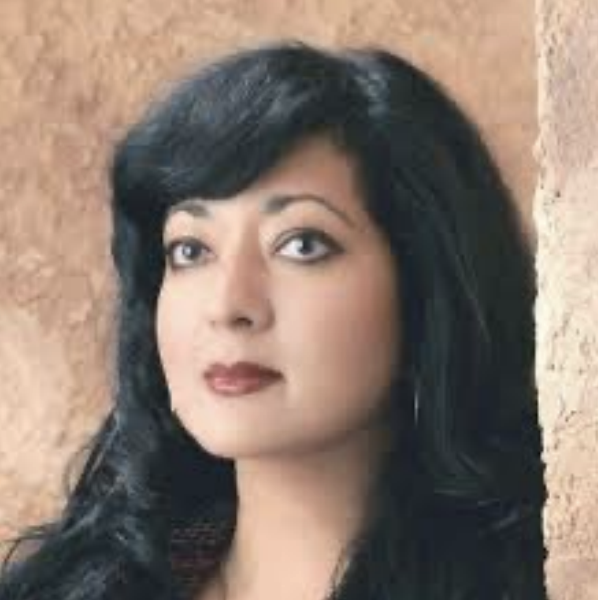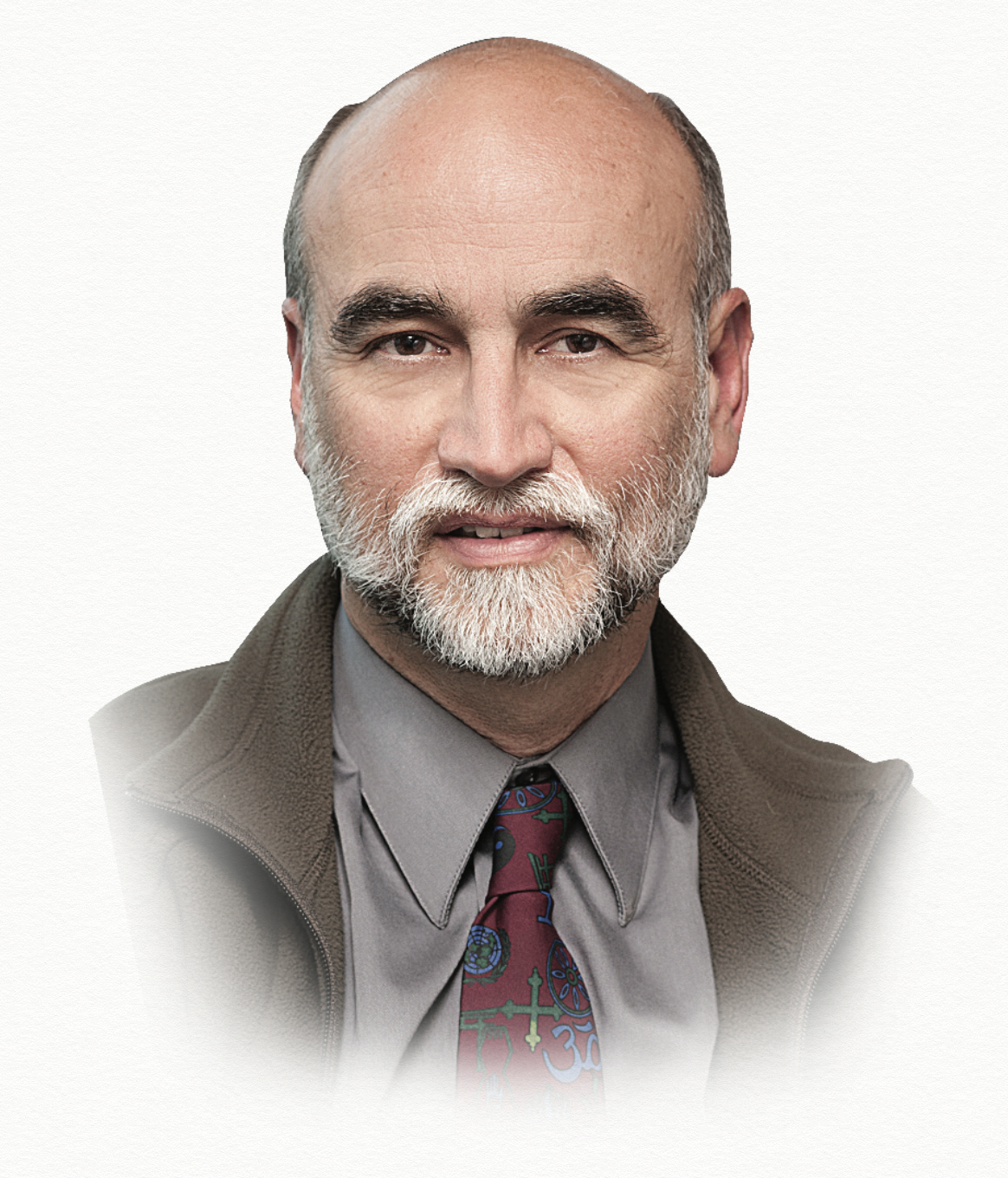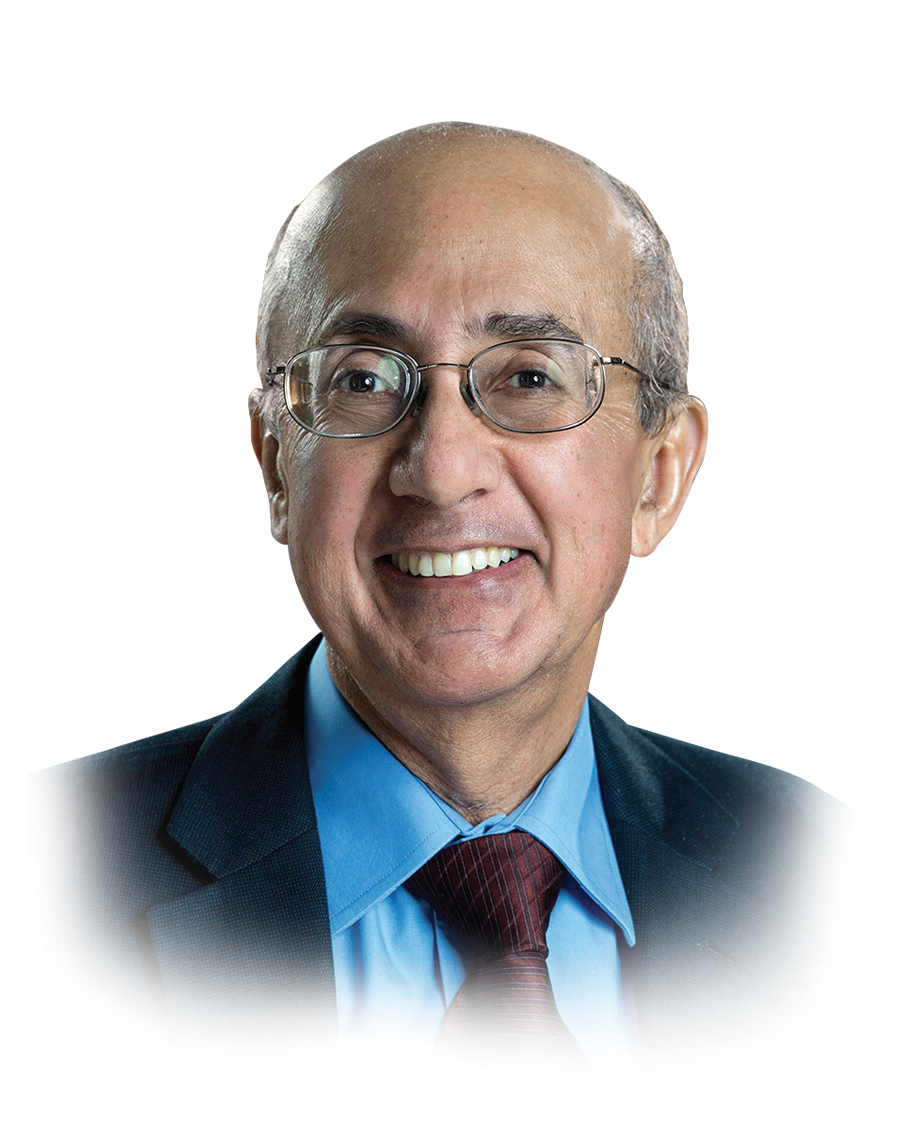Exemplar Awards
Each year SASA recognizes exemplary leaders in the field of South Asia. We are proud to have honored the following cultural and community leaders, world-class scholars, & teachers:
Maestro Swapan Chaudhuri, 2024
Pandit Swapan Chaudhuri is a phenomenon in the arena of Indian Classical Music. Musicians honor him as one of the most respected Tabla players, worthy of highest regard all over the world. Today a two time Grammy nominee, it was Swapan’s beloved parents, through their own passion for music, who initiated his formal musical training and inspired him in the field of Tabla, paving the path that would eventually lead him to virtuosity. Swapanji holds a pedigree of awards and accolades reserved for artists of only the highest caliber. He is a recipient of the prestigious Padma Shree Award and Sangeet Natak Academy Award from the Government of India, as well as the American Academy of Artists Award, accolades which are reserved only for those artists who have attained the highest level of artistry. He is also the recent recipient of a Doctorate of Letters from Rabindra Bharathi University in Kolkata, India.
Swapanji has received the Excellence in Performing Arts Award from the Global Indian Congress in San Francisco, and has been nominated into the esteemed International Percussive Arts Society's Hall of Fame. In 2016, and again in 2019, Swapanji was awarded the Master/Apprentice Award from the Alliance for California Traditional Arts. Swapan Chaudhuri started learning Tabla at the age of five. He bases his style on the intensive training he received from his Guru, the late Pandit Santosh Krishna Biswas of Kolkata, an eminent exponent of the Lucknow Gharana. He holds a Master’s Degree in Music and has been conferred honors for his distinguished contributions in the field of Tabla by various academic and musical institutions. In addition to academic degrees in music, Swapanji also holds a Master’s Degree in Economics from Jadavpur University, Kolkata. His concert career has taken him to the most prestigious stages in the world including Carnegie Hall, the Kennedy Center, Queen Elizabeth Hall, and the United Nations. Two records, Legacy (1997) and Passing on the Tradition (1998), were nominated for Grammy Awards, on which Swapanji collaborated with Asha Bhosle and Ustad Ali Akbar Khan.
Dr. Deepak Shimkhada, 2023
Dr. Deepak Shimkhada was born in Darkha, a remote village nestled in the foothills of the Ganesh Himal mountain range in West Nepal. He studied fine arts in India at the University of Baroda in Gujarat. There, he began his training in art, which would prove a life-changing experience for him. Upon earning an M.A. degree in FineArts, he was awarded a Fulbright Fellowship to study art history in the United States. He attended the University of Southern California, the University of Chicago, Ohio State University, and finally Claremont Graduate University, where he received a Ph.D. Dr. Shimkhada’s area of academic interest is the relationships between art and religion and between religion and science. He has taught subjects ranging from art history to culture, semiotics, and religions at a number of universities and colleges, including Scripps College, Claremont McKenna College, Claremont Graduate University, Claremont School of Theology, and California State University at Northridge.
As a member of several academic and social organizations, Dr. Shimkhada has served as president of the Nepal-America Society of California, the Himalayan Arts Council of Pacific Asia Museum, and the Asian Studies on the Pacific Coast and South Asian Studies Association. Currently, he is president of the Indic Foundation. Dr. Shimkhada has appeared in many televised episodes on the History Channel, Australian Channel and BBC. He is a widely-published author who has contributed many articles and chapters to academic works. These include Himalayas at the Crossroads: Portrait of a Changing World (1987); The Constant and Changing Faces of the Goddess: Goddess Traditions of Asia (2008); Nepal: Nostalgia and Modernity (2012); As the World Churns: A Legend Where Reality and Myth Blend (2020); Nepal: Historical Study of a Hindu Kingdom (2022); and Nepal, a Shangri-La? Narratives of Culture, Contact and Memory (2022). Dr. Shimkhada’s autobiography, Nepal to California: A Life of Adventure and Memories (2022) is a fascinating journey through his life.
Deepak Nayyar is Emeritus Professor of Economics at Jawaharlal Nehru University, New Delhi. He has been invited to the Kluge Chair in Countries and Cultures of the South at the United States Library of Congress in Washington DC for 2022-23. He was Distinguished University Professor of Economics at the New School for Social Research, New York, from 2008 to 2012. And he was Professor of Economics at Jawaharlal Nehru University, New Delhi, from 1986 to 2011. Earlier he has taught economics at the University of Oxford, the University of Sussex, and the Indian Institute of Management, Calcutta. He was Vice-Chancellor of the University of Delhi from 2000 to 2005.
His distinguished career in academia has been interspersed with short periods in the government. He was, to start with, in the Indian Administrative Service. Later, from 1983 to 1985, he worked as Economic Adviser in the Ministry of Commerce. He served as Chief Economic Adviser to the Government of India and Secretary in the Ministry of Finance from 1989 to 1991.
He was educated at St. Stephen’s College and the Delhi School of Economics, University of Delhi. Thereafter, as a Rhodes Scholar, he went on to study at Balliol College, University of Oxford, where he obtained a B. Phil and a D. Phil in Economics.
Deepak Nayyar is an Honorary Fellow of Balliol College, Oxford. He is a Distinguished Fellow of the Centre for the Study of Developing Societies, Delhi. And he is a Distinguished Professor at the Council for Social Development, New Delhi. He is Chairman of the Sameeksha Trust, which publishes Economic and Political Weekly.
Professor Sudha Pai, 2019
Professor Sudha Pai is a preeminent Indian political scientist, educator, author and columnist whose distinguished career spans almost four decades. She is currently President of the research think tank, Policy Research and Management Network (PRAMAN) in New Delhi. PRAMAN’s mission is to help improve the quality of Indian public policy formulation, implementation and evaluation through creation and dissemination of knowledge, and it undertakes research on multiple aspects of Indian public policy in areas including health, education, agriculture and foreign policy. She retired in 2016 as Professor of Political Science at JNU’s Centre for Political Studies and as Rector (Pro-Vice Chancellor). Dr. Pai holds a PhD from JNU and has over 35 years of teaching and research experience at JNU, Delhi University and Gargi College. She originally joined JNU, in 1980, as Assistant Professor within the Centre for Political Studies, School of Social Sciences. At the Centre she has taught courses and guided research in the fields of Indian politics and comparative politics. Her research interests include Dalit politics, state politics in India, agrarian politics, globalization and legislative governance. Her former students now hold faculty positions in many leading Indian universities, the Indian Civil Services, journalism and NGOs.
Dr. Christopher Key Chapple, 2018
(Doshi Professor of Indic & Comparative Theology, Loyola Marymount University). Dr. Chapple is the Doshi Professor of Indic and Comparative Theology at Loyola Marymount University. He is also Director of the Master of Arts in Yoga Studies program at LMU, a first of its kind in the nation, which he inaugurated in 2013. He has published more than twenty books and edited many more volumes, primarily in the area of religion and ecology, and he has authored hundreds of articles, essays, and lectures. He serves as an advisor to the Centre for Jain Studies in London, to the International Summer School for Jain Studies in Delhi, to the Oberoi Foudation in Denver, to the Ahimsa Center in Pomona, and to the Forum on Ecology at Yale. Together with philanthropists Pratima and Navin Doshi, he convenes the annual Doshi Bridgebuilder Award events at LMU. Dr. Chapple additionally hosted the first SASA Annual Conference at LMU in 2007, and he has been a frequent speaker at subsequent SASA conferences.
Deepa Mehta, 2022
Filmmaker Deepa Mehta directed several award-winning and Oscar nominated films, including Fire, Earth, and Water, dramatic reflections on sexuality, politics, women's rights, and human dignity. Her recent Apple TV film for the Little America series, The Manager, chronicles the life of a brilliant youngster who, despite the deportation of his parents, competes in the finals of the National Spelling Bee. A native of Amritsar, she studied philosophy at Delhi University.
Dr. Rafiq Dossani, 2017
(Director, RAND Center for Asia Policy, Sr. Economist & Professor, Pardee RAND Graduate School). Rafiq Dossani is director of the RAND Center for Asia Pacific Policy, a senior consultant at the Rand Corporation, and a professor at the Pardee RAND graduate school. His research interests include education, regional development, security, finance, and technology issues. His diverse work focuses on Muslim minorities in Asia, the role of Chinese and Indian engineers in Silicon Valley, the growth of venture capital in India, regional integration in South Asia, the Trans Pacific Partnership, and India-Pakistan negotiations over Kashmir. His advisory work has ranged from strategic planning for the Kurdistan Regional Government of Iraq to the telecommunications industries in India and Pakistan, and on to how the World Bank might improve trade relations in South Asia. Dossani’s non-profit work includes serving as a trustee for Hidden Villa, an environmental initiative in the Bay Area, and earlier, serving as a Director of the Aha Khan Rural Support Program in India. He holds a Ph.D. in Finance from Northwestern University, an M.B.A. from the Indian Institute of Management, Calcutta, and a B.A. in Economics from St. Stephen’s College, Delhi.
Dr. Joe Dye, 2011
Joe has served in multiple capacities at the Virginia Museum of Fine Arts, but always as Curator of its South Asia collection, which he built throughout his career. However, publishing “The Arts of India” in 2001, it remained a hidden gem known to only a handful of people. Subsequently, the Virginia Museum of Fine Arts has achieved recognition as home to a world-class collection of South Asian art. Without Joe’s dedication and lifetime of service it would not have happened.
Dr. Rita D. Sherma, 2023
Dr. Rita D. Sherma is founding Director of the Graduate Theological Union’s Center for Dharma Studies (CDS) in Berkeley, California. She served as Chair of the Theology & Ethics Department, GTU Core Doctoral Faculty, and as Co-Chair of Sustainability 360, an interreligious and intercultural environmental humanities initiative. Her responsibilities at GTU, Berkeley, have included the development of the structure and curriculum for two MA and four PhD Concentrations, as well as two Certificates—including a forthcoming one in Sustainability Studies. She holds an MA in Religion, and a PhD in Theology & Ethics from Claremont Graduate University, CA. Prior to coming to GTU, she served as the Swami Vivekananda Professor of Hindu Studies at University of Southern California (USC), Los Angeles.
Dr. Sherma serves on the Editorial Board of the American Academy of Religion’s Reading Religion Journal, the Advisory Board of the Yale University Forum for Religion and Ecology, and is Co-Editor-in-Chief of the Journal of Dharma Studies: Asian and Transcultural Religion, Philosophy, and Ethics. She is Co-editor of Hinduism and Tribal Religions in the multi-volume Encyclopedia of Indian Religions (2022).
Released in June 2022, her 35-chapter edited volume titled Religion & Sustainability: Interreligious Resources, Interdisciplinary Responses was published in the UN Sustainable Development Goals Series | Springer-Nature, (with P. Bilimoria). She has published nine books including Swami Vivekananda: His Life, Legacy, & Liberative Ethics (2021); Contemplative Studies and Hinduism: Meditation, Devotion, Prayer & Worship (2020); Woman & Goddess in Hinduism (2011); Hermeneutics and Hindu thought: Towards a Fusion of Horizons (2008), and more than 35 academic book chapters and journal articles. Contemplative Studies & Jainism: Meditation, Renunciation, Prayer, and Veneration (with C. Bohanec & P. Bilimoria) is pending publication (2023). Her works have appeared in publications released by NYU, SUNY, Georgetown University Press, and other notable publishers. Dr. Sherma served as the religion and culture advisor on the animated movie, Soul, which won two academy awards including best animated feature. Rita Sherma has presented over 100 scholarly research papers at major academic forums such as the American Academy of Religion and other eminent venues. She is a longstanding meditation teacher.
Romila Thapar, 2022
Historian Romila Thapar, author of more than 20 books, is Professor Emerita at Jawaharlal Nehru University. Her work insightfully elucidates the complex interface of cultures and communities throughout India history, highlighting change and continuity. Her study of Emperor Ashoka examines the role of Buddhist Dharma in establishing a harmonious social order. She received her doctorate from the School for Oriental and African Studies at the University of London.
Dr. Sthaneshwar Timalsina, 2021
Dr. Sthaneshwar Timalsina’s humble beginnings go back to Nepal where he was born. Nepal has been described by many as a place of Tantra. Dr. Timalsina’s learning and training in the knowledge of Tantra began in Nepal first with his father and then with other noted Sanskrit scholars. He then went to Banares, the holy Hindu city of India, to further his studies in Sanskrit. After receiving an M.A. (Acharya) in Classical Indian Philosophy, and particularly in Yoga and Tantra, from the Sampurnananda Sanskrit University, Varanasi in 1991, he returned to Nepal and took a teaching position at Mahendra Sanskrit University. In 2000, he went to Germany for his Ph.D. In 2005, he received his Ph.D. from Martin Luther University in Classical Indian Philosophy with a focus on Advaita Vedanta.
At the same time as he was pursuing his Ph.D., he was offered a teaching position at the University of California in Santa Barbara. These many, subsequent stops in his academic career range from Grinnell College in Iowa to Washington University in St Louis, Missouri. Finally, in 2005, he joined the Department of Religious Studies at San Diego State University in San Diego, California, where he quickly climbed the academic ladder from assistant professor to full professor in a very short time—all on the strength of his scholarship and academic acumen. He is a highly sought-after scholar of Sanskrit, Vedanta, and Tantra.
Dr. Timalsina writes in the English, Sanskrit, and Nepali languages; he has published five books and has published more than eighty refereed papers and book chapters. His recent works include Tantric Visual Culture: A Cognitive Approach (Routledge) and Language of Images: Meaning and Visualization in Tantras (Peter Lang). He actively participates in conferences of the American Academy of Religion and American Philosophical Association. He has written and presented more than sixty conference papers.
Dr. Minoti Chakravarti Kau, 2016
(Emerita Professor of Economics at Lady Shri Ram College). Professor Minoti Chakravarty-Kaul taught Economics at Lady Shri Ram College, University of Delhi, from 1961 until her retirement as Emerita in 2002. The community concerns over the distribution of common lands from the villages of a cluster in North West Delhi in 1977 sparked her research into common property, and ultimately resulted in her most famous work, Common Lands and Customary Law: Institutional Change in the Past Two Centuries (Oxford UP, 1996). Throughout her career she worked closely with the 2009 Nobel Prize winner in Economic Science, Elinor Ostrom.
Her work has been recognized with a Fulbright Fellowship, a Ford Foundation Fellowship, a Ciriacy Wantrup Fellowship, and a University of California, Berkeley and The Shastri Indo-Canadian Fellowship. She is the founder of the Raah Shamilat Research Group and the RAHAT Resource Center. She is also a founding member of the International Association for the Study of Commons. Her current work widens her geographic scope, but maintains her strict focus on the cause and the curse of the commons.
Dr. Paul R. Brass, 2014
(Ph.D., University of Chicago). Professor Emeritus of Political Science and International Studies at the University of Washington, Dr. Brass is a prodigious scholar with nearly two score books in print, including a two volume biography of Charan Singh, several monographs examining ethnicity and caste in politics, and multiple ground breaking studies on the origin and management of political violence. A full listing of Paul’s monographs can be found on his personal website.
Dr. Alexander Dubiansky, 2013
(Ph.D., Moscow State University). Dr. Dubiansky teaches Tamil Studies at the Institute of Asian and African Studies, Moscow State University. Although not well-known to Western Indologists, he is one of the foremost scholars of the Tamil tradition working today. His major monographs, in Russian, include Ritual and Mythological Background of Ancient Tamil Lyrics (1989), Tamil Literature: an Outline (in cooperation with L. Bychikhinam 1987), and Songs on Palm-Leaves. An Anthology of Ancient Tamil Lyrics (1979). Ritual and Mythological Sources of the Early Tamil Poetry (2000) is available in English. In addition, Dr. Dubiansky is the author of several dozen research papers in both Russian and English. At least as important as these contributions are, he excels as a teacher and mentor to the next generation of scholars.
Dr. Alfred Hiltebeitel, 2012
(Ph.D., University of Chicago Divinity School). Dr. Hiltebeitel is a professor of religion at the Columbian College of Arts and Sciences, George Washington University. Throughout his career his central focus of research has been the great epics of India (specifically the Mahabharata and Ramayana), regional folk epics, and the cult of the goddess Draupadi. He has authored, edited, and translated many books and dozens of articles. Among his books are Dharma: Its Early History in Law, Religion, and Narrative (2011), The Rutual of Battle: Krishna in the Mahabharata (1990), The Cult of Draupadi (1988, 1991), and Rethinking India’s Oral and Classical Epics: Draupadi Among Muslims, Hindus, and Dalits (1999).
Dr. Stanley Wolpert, 2010
(Ph.D., University of Pennsylvania). Professor Wolpert academic home is the History Department, University of California, Los Angeles beginning as an instructor in 1959 and continuing on through retirement. A prolific writer, Wolpert’s major academic publicatons include Tilak and Gokhale: Revolution and Reform in the Making of Modern India (1962)., Morley and India, 1906-1910 (1967), A New History of India, (1977, 1989, 1993), Roots of Confrontation in South Asia (1982), Jinnah of Pakistan (1984), Zulfi Bhutto of Pakistan (1993), Nehru: A Tryst with Destiny (1996). He is also a significant interpreter of South Asia to popular Western audiences, most famously via his novel Nine Hours to Rama, which was later turned into a popular movie of the same name.
Dr. Harold A. Gould, 2009
(PhD, Washington University). Hal served as professor of anthropology and South Asian Studies at the University of Illinois, Champaign-Urbana, from 1968 to 1991. Since then he has been a visiting professor of South Asian Studies at the University of Virginia, Charlottesville. His research focus has been on grass-roots political behavior and commentary on South Asian politics. His major publications include The Hindu Caste System. Vol 1: The Sacralization of a Social Order, 1987; The Hindu Caste System, Vol 2: Caste Adaptation in Modernizing Indian Society, 1988; The Hindu Caste System, Vol. 3: Politics and Caste, 1990; Grass-Roots Politics in India: A Century of Political Evolution in Faizabad District, 1994; Sikhs, Swamis, Students and Spies: The India Lobby in the United States, 1900-1946, 2006; The South Asia Story: The First Sixty Years of U.S. Relation with India and Pakistan. New Delhi: Sage Publications 2010.
Dr. Pratapaditya Pal, 2008
(PhD, University of Calcutta). Prior to retiring, Dr. Pal served the Himalaya and/or South Asia curator for several world-class museums (Boston Museum of Fine Art, Norton Simon Museum, Pasadena; Art Institute of Chicago; Los Angeles County Museum of Art), in addition to teaching at a number of major universities. Dr. Pal is general editor of Marg, A Magazine of the Arts. An internationally respected authority on art and culture in the Subcontinent, particularly the Himalayas, and Southeast Asia, Dr. Pal has authored over 60 publications including such landmark monographs as: Dancing to the Flute: Music and Dance in Indian Art, Light of Asia, and Goddess Durga: The Power and The Glory. In 2009 he was awarded the Padma Shri by the President of India.


















